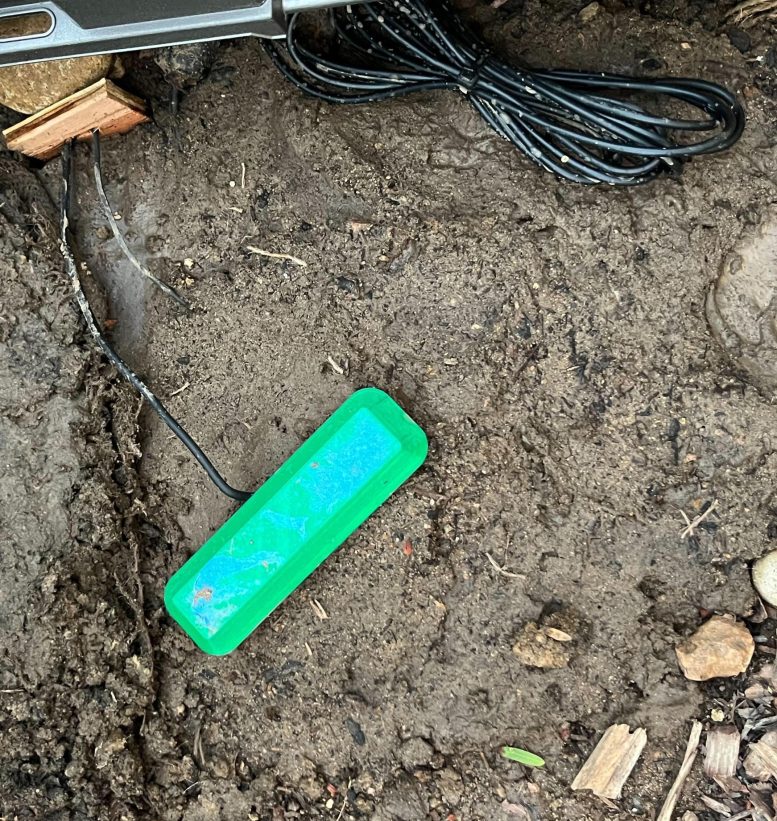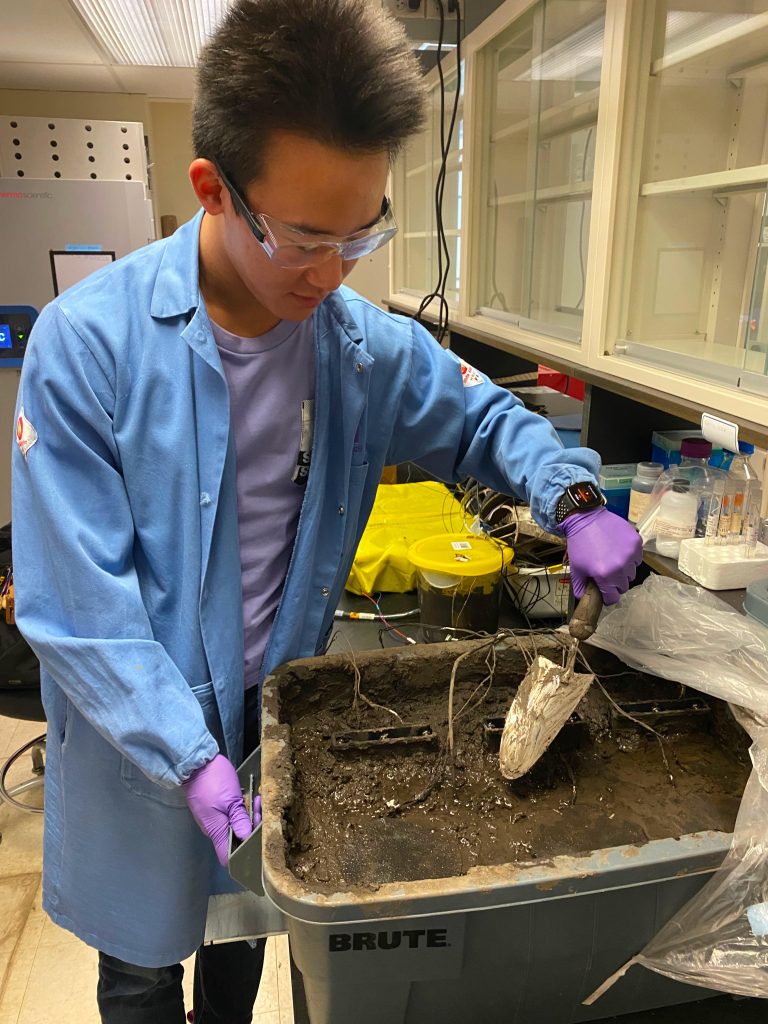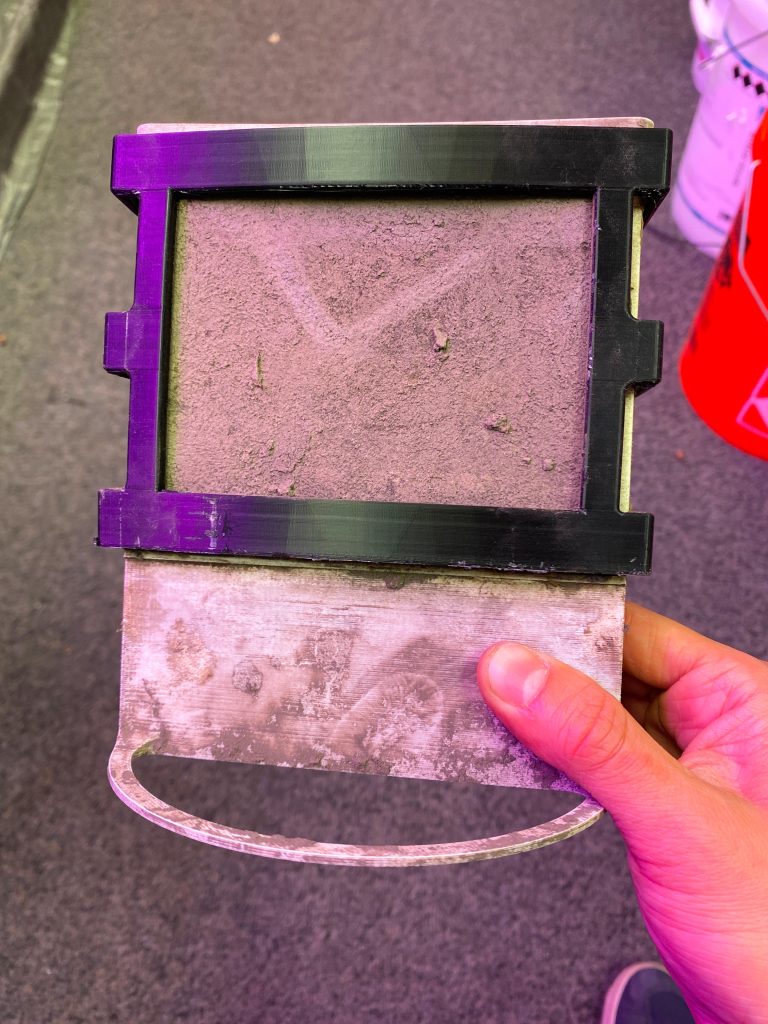 A new soil-based fuel cell developed by researchers at Northwestern University has surpassed other similar technologies and introduces a sustainable method for producing low-energy, affordable, and widely accessible fuel cells. The novel technology utilizes microorganisms living in soil to generate energy, offering a renewable alternative to toxic and flammable chemicals found in batteries, which contribute to electronic waste. The researchers tested the fuel cell’s capabilities, such as measuring soil moisture and detecting touch, with the potential for applications like tracking passing animals and enabling wireless communication by reflecting signals to a nearby station. The study will be published in the Proceedings of the Association for Computing Machinery on Interactive, Mobile, Wearable, and Ubiquitous Technologies, and the research materials will be made publicly available for others to utilize and build upon.
A new soil-based fuel cell developed by researchers at Northwestern University has surpassed other similar technologies and introduces a sustainable method for producing low-energy, affordable, and widely accessible fuel cells. The novel technology utilizes microorganisms living in soil to generate energy, offering a renewable alternative to toxic and flammable chemicals found in batteries, which contribute to electronic waste. The researchers tested the fuel cell’s capabilities, such as measuring soil moisture and detecting touch, with the potential for applications like tracking passing animals and enabling wireless communication by reflecting signals to a nearby station. The study will be published in the Proceedings of the Association for Computing Machinery on Interactive, Mobile, Wearable, and Ubiquitous Technologies, and the research materials will be made publicly available for others to utilize and build upon.
 Bill Yen, the lead author of the study, conducted experiments on the soil-powered fuel cell at a laboratory at Northwestern University. Yen expressed the potential of utilizing the ubiquitous microorganisms present in soil to generate electricity, recognizing the significance of using less energy-intensive methods in various applications such as precision agriculture, which relies on electronic devices for collecting environmental data. Yen highlighted the drawbacks of existing power sources, including solar panels’ limited performance in dirty and low-light conditions, and the practical challenges of maintaining batteries and solar panels in large agricultural areas. This led the researchers to explore the possibility of harnessing energy from the existing environment, particularly from the soil under cultivation.
Bill Yen, the lead author of the study, conducted experiments on the soil-powered fuel cell at a laboratory at Northwestern University. Yen expressed the potential of utilizing the ubiquitous microorganisms present in soil to generate electricity, recognizing the significance of using less energy-intensive methods in various applications such as precision agriculture, which relies on electronic devices for collecting environmental data. Yen highlighted the drawbacks of existing power sources, including solar panels’ limited performance in dirty and low-light conditions, and the practical challenges of maintaining batteries and solar panels in large agricultural areas. This led the researchers to explore the possibility of harnessing energy from the existing environment, particularly from the soil under cultivation.
 A soil-based fuel cell, capable of functioning in various environments, was developed through a series of design modifications and field testing. The fuel cell’s unique design allows it to operate effectively in both dry and wet conditions, addressing the challenges faced by traditional soil-based fuel cells. Moreover, the researchers emphasized the affordability and accessibility of the fuel cell, as its components can be easily acquired from local hardware stores, aligning with the goal of making computing accessible to all communities.
A soil-based fuel cell, capable of functioning in various environments, was developed through a series of design modifications and field testing. The fuel cell’s unique design allows it to operate effectively in both dry and wet conditions, addressing the challenges faced by traditional soil-based fuel cells. Moreover, the researchers emphasized the affordability and accessibility of the fuel cell, as its components can be easily acquired from local hardware stores, aligning with the goal of making computing accessible to all communities.
The study was supported by the National Science Foundation, the Agricultural and Food Research Initiative from the USDA National Institute of Food and Agriculture, the Alfred P. Sloan Foundation, VMware Research, and 3M.
Scientists Unveil Innovative Soil-Powered Fuel Cell with Unlimited Potential














